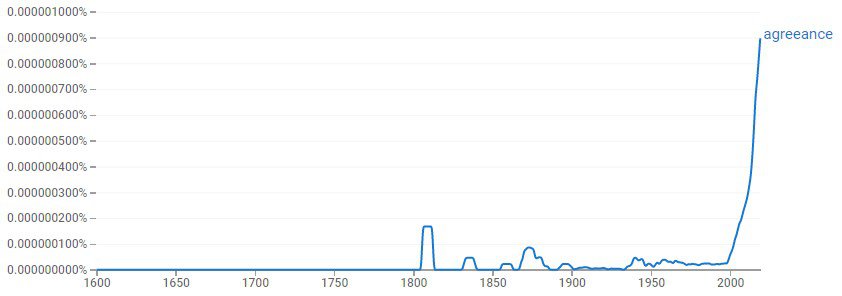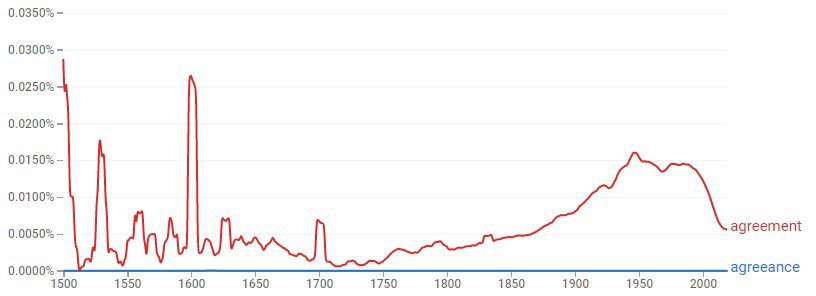Agreeance is a term that denotes the act of coming to a mutual understanding or agreement. It is an obscure form of agreement that is now rarely used. An agreement is an understanding, a compromise to get two sides to find common ground. For things to be in agreement, they are harmonious or do not contradict each other.
Although both words indicate two or more parties getting along, agreeance is an older version that can mistakenly used to create personification, so agreement is the more accepted and widely used word.
In this article, we delve deeper into the nuances of these words, exploring their definitions, spellings, and origins. With examples to illustrate their proper usage in various contexts, you’ll gain a comprehensive understanding of when and how to use each term.
Read on to elevate your writing skills!
Is It Agreeance Or Agreement?
Although both are correct, it is more acceptable to use the term agreement to illustrate or explain two sides getting along. Agreeance is an older form of the word agreement that has not been widely used since the 1800’s.
The Origin of Agreeance
The word agree originated in France during the late 14th century from the Old French agreer, meaning to “please, satisfy, receive with favor, or take pleasure in”. The French term agreeance is the noun of the action, defining the action “to agree”.
In the 1530s, agreeance became commonly used in British English and was later adapted in American English within the early 19th Century. Despite a falling off of use through the 1900s, it has recently made a comeback within both writing and speaking in relation to legal text and historical references.
Which is More Acceptable?
Despite an increase of the word agreeance in modern text and speech, the word agreement has always been much more widely used across the English language – making it much more popular and acceptable to use.
Agreeance continues to be a more obscure form of use and has a more specific use in specialized texts.
The argument that its use is often wrong is also valid.
It is often incorrectly found in the phrase in agreeance instead of in agreement. Instead of saying that things agree with each other, the addition of the word in suggests that the user is saying that things are in the act of agreeing with each other.
This personifies or gives human-like traits to the objects in agreement. Even though an argument could be made for its proper use regardless of its lack of popularity, agreement still sounds better.
Examples Of Agreement and Agreeance Being Used In A Sentence
Rival parties in Northern Ireland reached an agreement on Tuesday over an austerity budget dispute with Britain and legacy issues from decades of Catholic-Protestant strife. [The New York Times]
The agreement was reached on the basis of a Council presidency compromise text, drawn up in agreement with the Commission. [Council of the European Union]
The Orioles are in agreement on a one-year contract with free agent left-handed reliever Wesley Wright according to an industry source. [Comcast Sportsnet Baltimore]
If we do not get agreeance that it is a pervasive problem that is happening we cannot get to the next step. [Capital New York]
And, as fact-extraction accuracy rises to the level of “human agreeance,” the application of NLU will push the limits of what we have come to expect as a great (and productive) user experience. [Wired]
Let’s Review
Although both agreement and agreeance are acceptable to use, agreeance is older and more obscure, and agreement is much more accepted in the contemporary English language.
If you choose to use agreeance, avoid using it with the word “in”, as that makes it incorrect.



